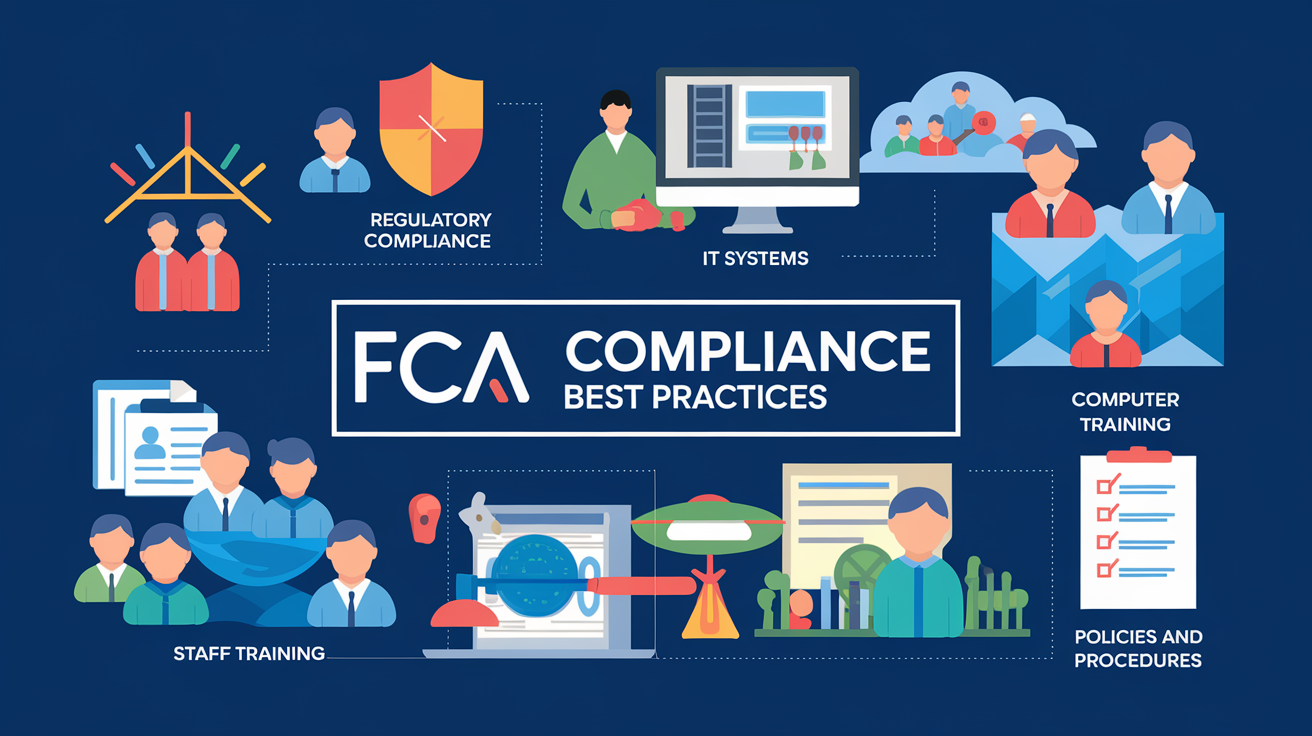
-
Introduction to FCA Compliance
FCA compliance is crucial for businesses operating within the UK financial sector. The Financial Conduct Authority (FCA) serves as a regulatory body tasked with maintaining market integrity and protecting consumers. This guide explores vital best practices to help organisations navigate the complexities of FCA regulations effectively.
-
Understanding the FCA Framework
The FCA operates on a framework that establishes the regulatory principles guiding financial institutions. Understanding this framework is essential for compliance. The FCA aims to ensure fair treatment of customers and the stability of the financial system through comprehensive oversight.
-
Key FCA Principles for Business
The FCA’s principles embody the essence of its regulatory approach:
-
- Integrity: Firms must establish a culture of honesty and integrity.
- Transparency: Clients should be clearly informed about products and services.
- Accountability: Companies must take responsibility for their compliance and the conduct of their employees.
-
Best Practices for FCA Compliance
4.1 Risk Assessment
Conducting a thorough risk assessment is the first step toward compliance. This involves identifying potential areas of regulatory risk, evaluating the significance of these risks, and implementing strategies to mitigate them. Regular risk assessments help ensure that new issues are addressed promptly.
4.2 Establishing a Strong Compliance Culture
A strong compliance culture is essential for effective adherence to FCA regulations. This can be achieved by promoting ethical standards at all levels of the organisation, encouraging open communication about compliance issues, and rewarding adherence to policies.
4.3 Regular Training and Awareness
Ongoing training is vital for ensuring that employees understand FCA regulations and their implications. Implement regular training sessions that cover updates in legislation, compliance procedures, and case studies of compliance failures to enhance employee knowledge and vigilance.
4.4 Documentation and Record Keeping
Proper documentation and record-keeping are fundamental to compliance. Maintain detailed, organised records of all compliance-related activities, including training sessions, risk assessments, and internal audits. This not only aids in accountability but also provides necessary information during regulatory reviews.
4.5 Monitoring and Reporting Mechanisms
Establish robust monitoring mechanisms to track compliance with FCA regulations. Regular compliance audits can help identify and rectify potential issues before they escalate. Create a transparent reporting system for employees to report compliance breaches without fear of reprisal.
-
The Role of Technology in Compliance
Technology plays a significant role in enhancing compliance efforts. Leveraging RegTech solutions can automate compliance processes, reduce errors, and streamline monitoring. Tools such as compliance management software can provide insights and data that help firms stay abreast of regulatory changes.
-
Dealing with Non-Compliance
In the event of non-compliance, it’s crucial to have a constructive plan. This includes investigating the issue, understanding its implications, and taking corrective actions promptly. Communicate openly with stakeholders about the measures being taken to rectify non-compliance and prevent future occurrences.
-
Conclusion
Adhering to FCA compliance is not merely a regulatory obligation but a vital component of building trust and integrity within the financial sector. Implementing these best practices will not only help safeguard your business against regulatory breaches but also enhance customer confidence in your services.
By following these guidelines, UK financial services can navigate the complexities of FCA compliance effectively, ensuring both operational integrity and customer protection.
To Contact Us
Tel; UK 0800 689 0190, International +44 207 097 1434
Email: info@complianceconsultant.org
Or Book A Discovery Call with us by clicking the picture below!
You may also find these posts of interest
FCA Risk Assessment and Management
Reporting Requirements for FCA Compliance
Establishing a Compliance Culture
Continuous Improvement for Compliance
Benchmarking Against Industry Standards

